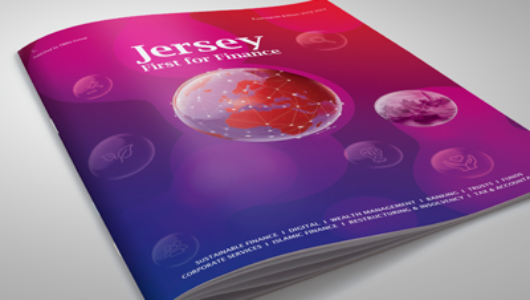The SDGs give us a broad, overarching view of the challenges the world faces. The 17 goals provide the framework we need to make lasting change happen and we will only be able to achieve them by working together: public, private, non-governmental sectors and every individual – through partnership, collaboration and shared understanding. This collaborative action, focusing on building healthy, prosperous and inclusive local communities will result in greater long-term progress towards the SDGs.
Donors and companies are beginning to examine the social impact they have on the communities they operate in and many have implemented environmental, social, and governance (ESG) strategies to measure their impact within a wider ethical and sustainable framework. The World Business Council for Sustainable Development (WBCSD) conducted a survey in 2019 that found among the 250 world’s leading global companies surveyed, 82% have reported on the SDGs. As well as looking at their sustainability footprint across different business areas, including supply chains, investments, products and services, companies are placing increasing importance on giving back to the communities they serve.
THE POWER OF PLACE WITHIN THE SDGS
The community foundation model is designed to provide a sustainable source of income to local charities and community organisations. Companies that want to ensure their charitable giving has a truly sustainable impact on the communities they serve find themselves strongly aligned with both the SDGs and the community foundation place-based model, according to a report by UKCF.
Community Foundations connect local sources of philanthropy with local charitable partners to deliver funding programmes that target local need. Taking a long-term approach that recognises local expertise is key to achieving the SDGs. Short-term, project-based funding restricts organisations to a hand-to-mouth existence that prevents them from being able to build the sustainable delivery models that will help us achieve progress towards the SDGs. Multiyear funding gives organisations the financial stability to improve their organisational capacity to deliver their services. Taking a place-based, community philanthropy approach, as community foundations do, harnesses the best of philanthropy.
Community Foundations are in an ideal position to understand and address a complex range of interdependent issues at a local level and the connection between the 17 SDGs emphasises the need for organisations and governments to no longer target social issues in isolation.
Taking, as an example, Goal 3 (Good Health and Wellbeing) and Goal 10 (Reduced Inequalities). Many preventative long-term health conditions across Jersey and the UK – such as obesity, heart conditions and diabetes – are a direct result of the consumption of cheap or unhealthy food. Yet just encouraging better diets and more exercise to achieve this Goal is not enough. A place-based model recognises that to achieve Goal 3, communities require equal access to education, work and inclusive spaces to ensure no one is left behind.
ASSESSING LOCAL NEED – MAKING SURE NO-ONE IS LEFT BEHIND
At Jersey Community Foundation (JCF), we are exploring the charitable landscape further through a ‘Local Needs Assessment’, the first of its kind in Jersey from a nongovernment body. We recognise that it is only possible to assess where social change can be achieved through an indepth understanding of the issues facing our community.
By understanding Jersey’s most pressing needs, we can prioritise funding decisions towards high impact interventions and provide a tool for tracking progress towards the SDGs in our community. In order to achieve this mission, we are working with PwC to undertake a Local Needs Assessment, with a focus on key cross cutting themes. The assessments will identify key needs and possible theories of change that would translate into social value. Assessments like this inform how funding organisations prioritise limited resources, as they drive funding strategies, underpin more targeted resourcing, support areas of the community that most need help and inform donors of local issues.
By gathering relevant data and hosting conversations in the community, our local needs assessment will use quantitative and qualitative data to better inform our strategic direction and grant making decisions.
Impact reporting forms a vital part of our grantmaking process. It serves to inform and guide us, so the maximum benefit is derived from our charitable activity, as well as helping track progress towards the SDGs. We want to empower local donors to address the issues arising from the SDGs through the work we are doing, supporting and developing our reach into the local community.
THE JERSEY CHARITY SECTOR
Jersey has a long tradition of community philanthropy and the charitable sector plays a significant role in Jersey. There are now more than 450 charities registered under the Charities (Jersey) Law 2014. By the end of 2021, the total assets of Jersey registered charities were of the order of £660 million (2020: £600 million) and in 2021 charities spent around £204 million (2020: £125 million).
Reputation and trust is crucial for Jersey’s not-for-profit sector. The Jersey legal and regulatory environment is flexible and sophisticated, catering for the needs of small local charities as well as global philanthropic enterprises and has long standing and deep expertise in the establishment of structures which are suitable for charitable, environmental and social impact purposes.
NURTURING STRONG AND GENEROUS COMMUNITIES
It is our hope that Jersey can become a community that effectively distributes its considerable wealth and kindness to causes that matter most to both donor and society. Many of us felt a renewed sense of community during the pandemic following seismic changes to our daily lives, a reliance on key sector workers performing in exceptional conditions and after prolonged absences from the people and places that make our community special. We must build on the positive trends that have taken hold in the philanthropy and grantmaking sector. Community level involvement in the SDGs will enable the Goals to become more relevant and their implementation more accountable to those they seek to serve.

